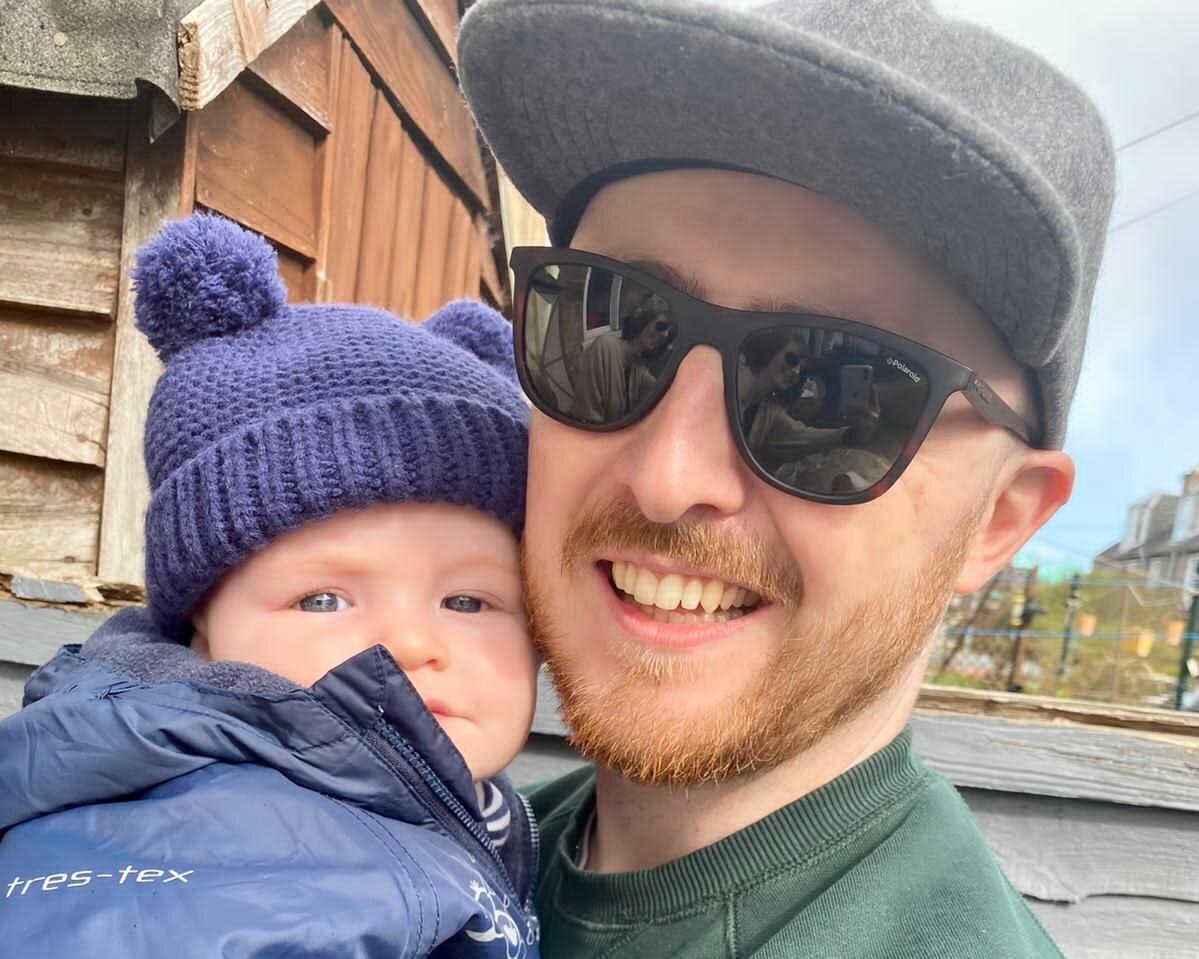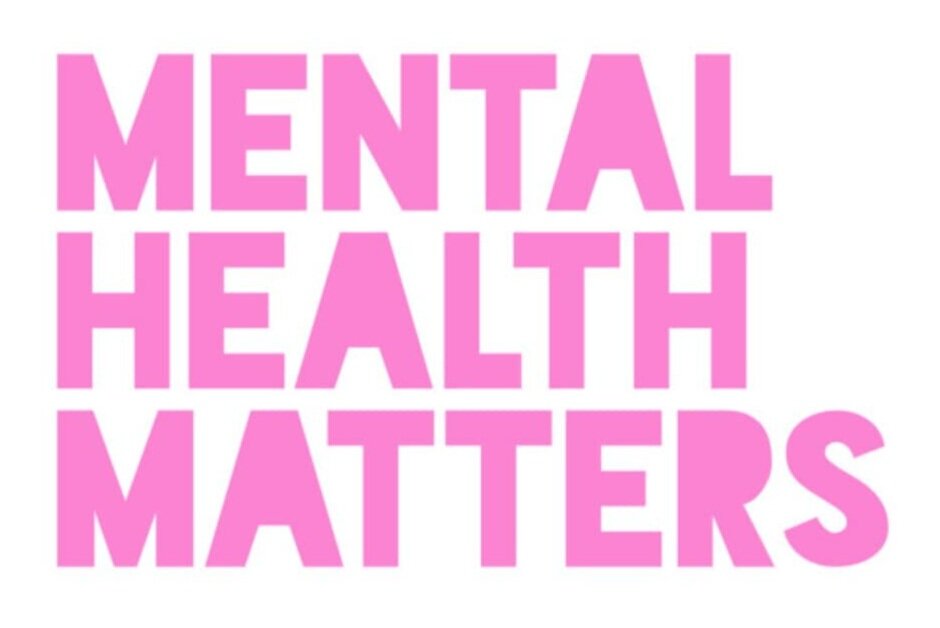3 Years Cancer Free - Part 3
So, first of all I’d like to say a huge thanks you to anyone who is still reading this blog this week. Hello again to my mum, I know you’re there. If you missed part one or part two, then simply click on the links provided :)
Writing about my story has been a positive cathartic experience, but I’d be lying if I said it hasn’t taken it out of me, and therefore potentially you too! My intention with this series, was to enlighten people to what it’s like to be diagnosed with Cancer, to understand better some of the treatment and side effects, and to see a positive outcome. Cancer takes so many people from us, many in my family alone, and so it is with great pleasure that I get to tell my success story, in the hopes it will go some way to helping others receiving that same world altering news today, to see a bright light at the end of the tunnel. The above photo was taken recently with my amazing Nephew and Godson Eoin. Life is great. It’s been a very rough road, but we’re here now, and so thankful for it.
WHAT HAPPENS AFTER A TRANSPLANT?
After a stem cell transplant, you have a lot of recovering to do. In the transplant world, the day you receive your stem cells is referred to as ‘Day Zero’. You’re told that you will have a ‘Day 100’ review, which is a significant milestone that will check if your ‘graft’ (the new stem cells) have fully embedded and make up 100% of your new immune system, and serves as a guide to keep you focussed on your recovery. As I mentioned, my treatment took place in Glasgow, so even though I had been sent home, I would still need to get myself to Glasgow for 9am clinic appointments twice a week for the first couple of months (and once weekly through to day 100). My mum or dad would drive me there for one, and my wife for the other. As you’d expect, I was still pretty weak initially, so I wouldn’t have wanted to drive for fear of exhausting myself.
Clinic appointments are initially quite nerve-wracking - and can still be now - as your bloods are checked to make sure all your cells are doing what they should be and that your new immune system is bedding in successfully. I’ve definitely earned my stripes waiting in hospitals over the past three and a half years! We would leave Edinburgh at 7am, to arrive at the Queen Elizabeth University Hospital for 9am; anyone who’s driven Edinburgh to Glasgow at this time will know that this gets you near Glasgow just in time for rush hour and the M8 is nose-to-tail. It was a pain in the hoop to have to do this twice a week for weeks, but each appointment felt like progress. And that’s how you have to look at this part of the story; slow progress. Although I am now well passed my ‘Day 100’, I still have to take some days one day at a time. I’d encourage more people to have this view, it helps you not sweat the small stuff so much :)
SIDE EFFECTS
So, I’m sure you’ll all wondering what kind of side effects you might have after something like a stem cell transplant. Again, I would suggest that I have been a very lucky person in many respects and including possible side effects. I have had some blips along the way, but I choose to see them as that - bumps in the road.
After the transplant, you’re heavily monitored, especially in those first 100 days. Your weight, blood pressure, pulse, diet and bloods are kept under the microscope and you’re taking a vast range of drugs. You see, once you have your new immune system in your body, you have to help it feel at home. This is where we come back to those tissue types again. The stronger the score out of 10 with your donor, the better the chance of a successful pairing. Even though I had a perfect tissue type match with Jamie, behind the scenes I’ve been coping with something called GvHD for the last couple of years.
GVHD
GVHD stands for ‘Graft Versus Host Disease’. What does this mean? In its simplest form, my new immune system knows that something isn’t quite right. You see, your new immune system still has memories of the old home it used to live in - in this case, my wee brother. So, GvHD occurs when your new immune system (the ‘graft’) sees something that it doesn’t recognise (‘the host’) and starts to get defensive. This can occur to any part of the body; initially I had some mild GvHD in my skin, with dry, red, tight patches, and about 6 months after my transplant it flared up more significantly in my liver…
LIVER GVHD
In November 2018, well after my ‘all clear’ news, I was up North with my best mates in Cromarty. We’d just arrived after a long drive and I sat on the couch, opened a beer…and my phone rang. I answered, and the call was from a worried consultant; my bloods had been taken the day before for a standard check-up and they were showing that many of my liver readings were abnormally high. I ask how abnormal? One of the readings (the ALTs) were meant to be under 50, and they were around 650. So, holiday cut short, I came home the next day thanks to my wife driving up to Inverness to collect me, with an appointment booked for the Monday morning in good old Glasgow again.
STEROIDS
I was told that the most likely cause of the liver inflammation was GvHD, and that initially I would be put onto Prednisolone steroids to suppress my immune system. The plan in this situation is to sort of send your immune system to sleep, and hope that when it wakes up again it recognises your body as where it lived before, and doesn’t want to attack it! So after some time, when the graft seemed to have stood down it’s attack, the Doctors advised I would phase slowly off the steroids and onto kinder immunosuppression medication, eventually hopefully phasing off that altogether - all the while keeping a close eye on my liver results. To be honest, it was something I was pretty apprehensive about, and it did turn out to be a bit of a strange experience, but largely textbook in side effects. When I was initially put on the steroids, I felt incredible. I cannot explain how good I felt! And this feeling lasted for weeks. I was more awake and focussed than I’d ever been. I remember thinking, ‘where were these beauties when I needed to study during my exams?!’ So, initially steroids were great, and they had the desired impact of starting to drop my ALTs back towards a normal range.
I was told before I began taking the drug about the many side effects it would have, including the positive one above. However even that had a knock on effect, as after a while I noticed that I was never feeling tired. It got so bad that I had to take sleeping pills each evening at 7pm, to hope that I would be able to sleep through the night. This worked for a while, but left me feeling groggy and hungover in the mornings, and not well rested at all. Another side effect was muscle wastage. This one was tough, but the Doctors had told me that I could minimise the wastage by keeping fit and exercising. I made this my new focus, and stuck to walking as long as I could each day and doing ‘sit to stand’ workout routine in the house to maintain my thigh muscles as much as possible. Even with this, my leg muscle was severely depleted by the time I finally got off the drug. I also experienced cramping, particularly in my hands. As I’m sure most of you know, I work as an illustrator for my employer and for my own business, so I need my hands to function. There were days during this part of my journey, where I worried it would get bad enough to stop my career as an illustrator, as my hands would lock in awkward positions at the drop of a hat. And of course as the whole point of the steroids were to make me immunosuppressed, I was at risk of picking up more severe illnesses or infections, and so had to revert to working from home after only a couple of months back at work in the office, which felt like a step back. It’s fair to say, I didn’t enjoy anything about Prednisolone, apart from those initial weeks.
MORE DRUGS
When I eventually phased off of the steroids, I was put on a wonderful drug called Tacrolimus , that successfully managed to reduce my ALT levels back to normal ranges while not putting my body through the harsher side effects of the Prednisolone. I have been on this drug now for almost two years; around one year after starting the initial steroids I was almost phased completely off the Tacrolimus but my ALT levels shot back up and we had to raise the drug again and plan an ever slower reduction schedule. So far since then it has maintained my ALT level, with the draw back that it suppresses my immune system. As this is by no means my first time with a weakened immune system, I’d become quite proficient in avoiding risk and it really hasn’t inhibited my life as much as you’d think, particularly as I’m now on such a low level of the drug. It’s a no go for things like football games and gigs, but none of us have exactly been leaving the house very much recently anyway.
EVEN MORE DRUGS
Throughout my treatment, I’ve built up what has at times resembled a mobile pharmacy. I think at it’s top end, I was taking around 30 meds a day, ranging from vitamin supplements, immuno-suppression, bone strengtheners, anti fungals, anti bacterials, steroids, the list goes on. Some days I’m sure I rattled a bit when I walked! Nowadays, even though I might seem totally normal to an outsider looking in, I still take around 10 drugs a day. Most of them are preventative, to protect me from infections while I still take Tacrolimus. I’m getting really close to being off of the drug now, currently on an un-therapeutic level, so my new immune system is awake and uninhibited. I’ll know very soon whether this has worked this time or not, but I’m feeling positive about it.
MENTAL HEALTH
I’ve talked an awful lot in this series about physical health and how my body has coped throughout my treatment. But how is my mind after it all?
I’m delighted to say that my mind is stronger than ever. I work hard at it though. Pre-Cancer, I was a very positive individual, the person you come to when you have a problem. I’m naturally a solution focussed person, who doesn’t panic when shit hits the fan. Without this mindset, I don’t know what would’ve happened in all of this, but I’m very happy to have been this way naturally.
Right from the start, I decided I was going to do everything I could to come out on top. I’ve had lots of luck along the way, firstly, and most importantly, having a cancer for which there was a cure. This is not the case for a lot of people, so I thank my lucky stars that I had the option of a successful outcome. Do everything you feel you can, when you can. This goes right back to what I said earlier in this series. If a health professional tells you that something could help you - do it. And don’t just do it to the lowest level either. When you feel strong enough, you need to focus on that feeling of strength, because there will be points where you can’t do anything but sleep. But it’s the preparation for these moments that are important. Eat plentifully when you feel you can, so that you can afford to lose days at a time, when you feel sicker. Do the exercises provided by the physio, as much as you can, when you can, so you feel stronger during your weaker moments. This is one hell of a fight, but with the right mental attitude, you can do it. This is how I focussed my mind. But how did I not just worry all of the time?
MAKE A MANTRA
Way back at the start of my journey my mother-in-law Carol, gave us a book called The Miracles of Your Mind by Dr. Joseph Murphy. The book discusses lots of important functions of your mind, but the thing we both were drawn to, was the incredible power that your mind can have over your body and how it behaves. I’m not a religious person, but I have an open mind about the sheer amount of stuff we don’t fully understand in the world. Case in point was the unbelievably simple understanding I had of my body before I went through Cancer treatment. What I’m trying to say, is that I read this book with an open mind.
The book suggests that a strong and consistent positive mantra can be an effective way to get your body to subconsciously fall in line. The power in this comes with sheer but calm and not unachievable positive repetition. I came up with a mantra at the start of my treatment, that I would say to myself as I fell asleep or at times I was feeling particularly worried, and it has been tweaked to suit my treatment phases at different points since. I even do a version of it now. Don’t get me wrong, I’m not saying that this approach would have cured me without the specialist treatment and incredible medical teams, but I truly believe that it helped me to recover quicker than I would have without it. It also allowed me to fight negative thoughts. Once it’s in your head, whenever you have negative thoughts (and they come often), you have a tool to help keep them at bay or push them away, it definitely helps.
I hear you asking, I wonder what this crazy guy says to himself? That’s for me to know and you to make up :) The main thing to take out is that it makes me stronger. I cannot recommend it enough, for anyone battling anything. My advice - start simple, be realistic. I’m not saying that if you say to yourself that you’ll be able to fly it’ll happen, but if you focus on basic things that you need to overcome, this technique will work.
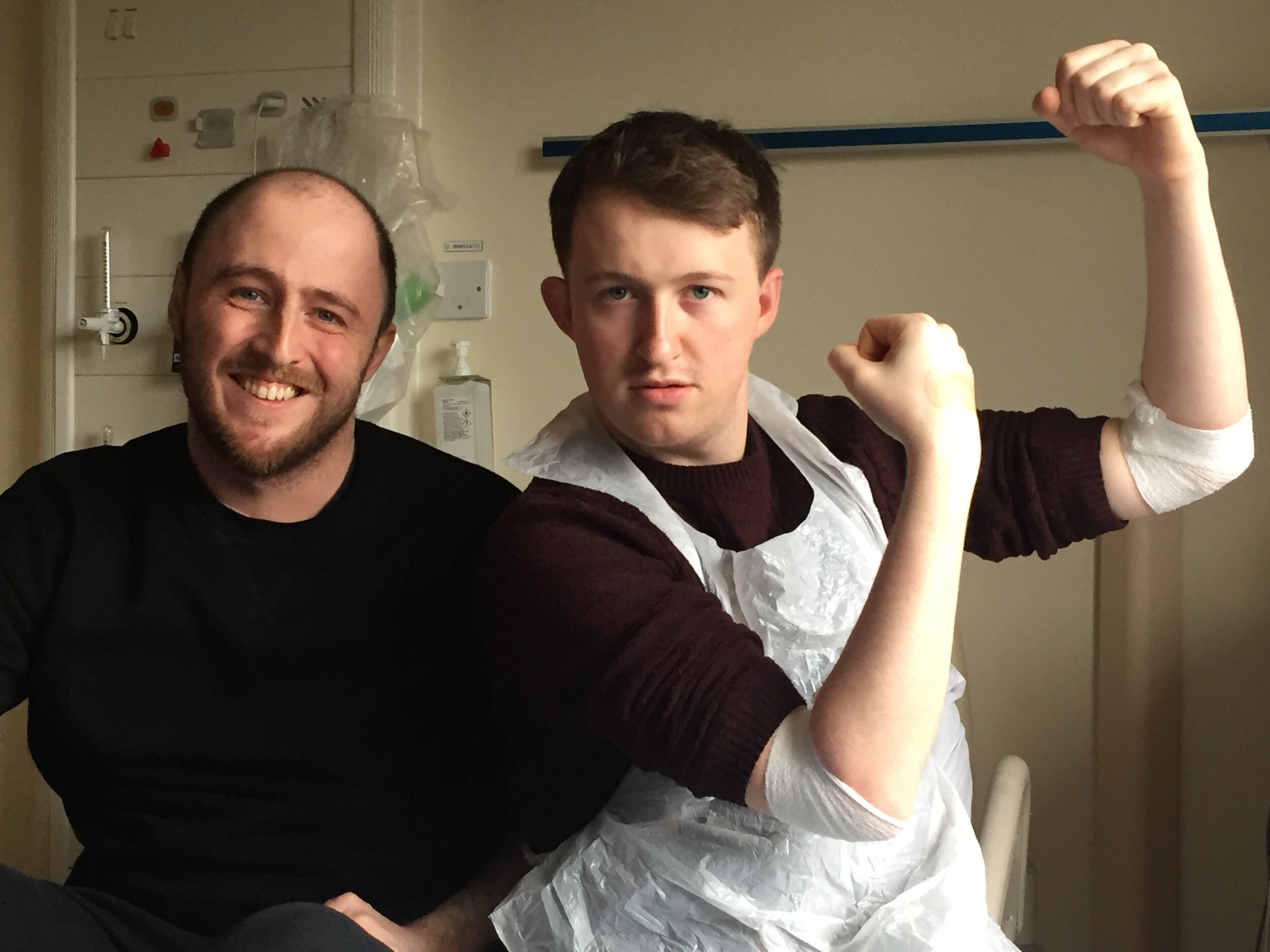
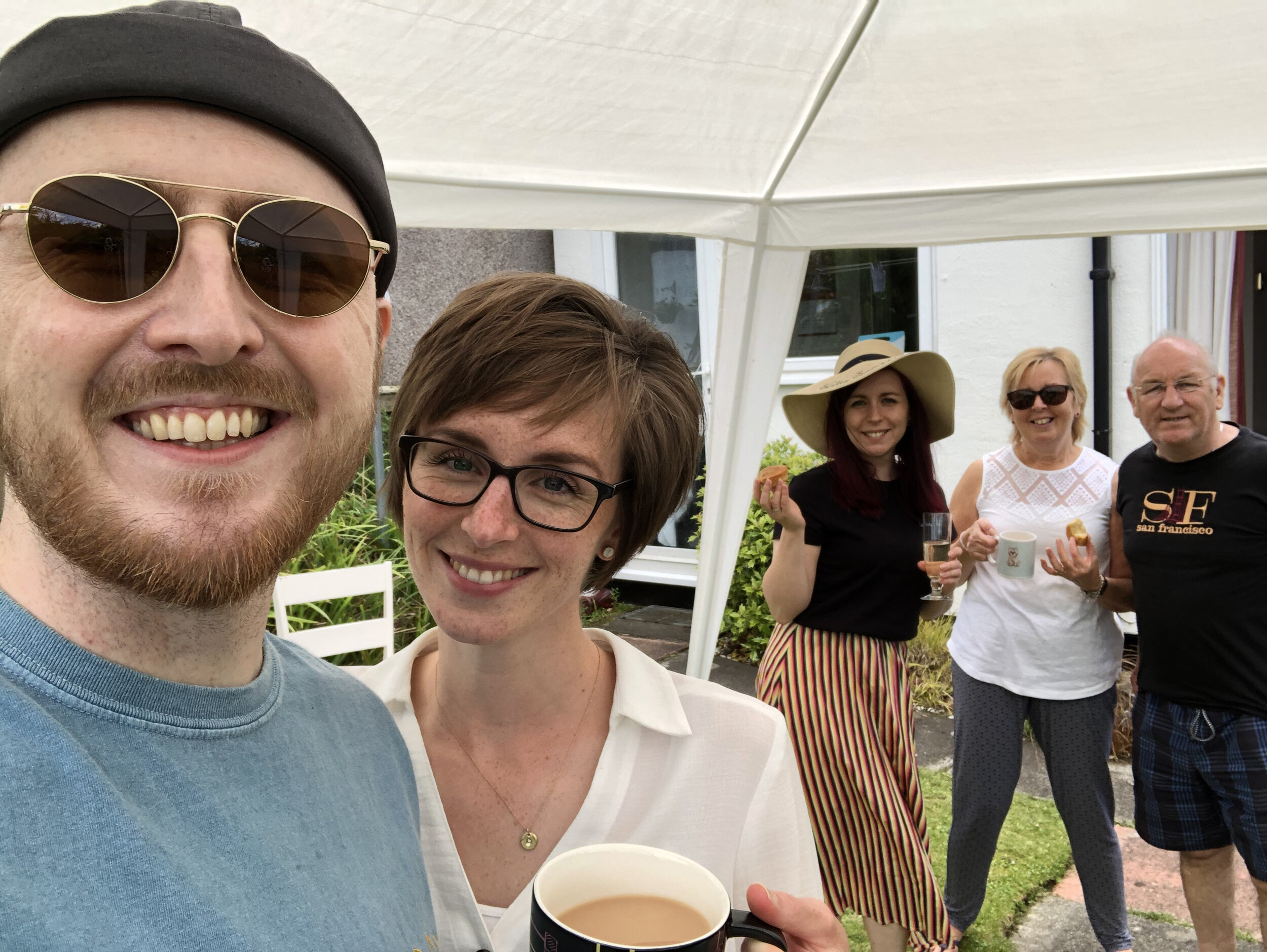
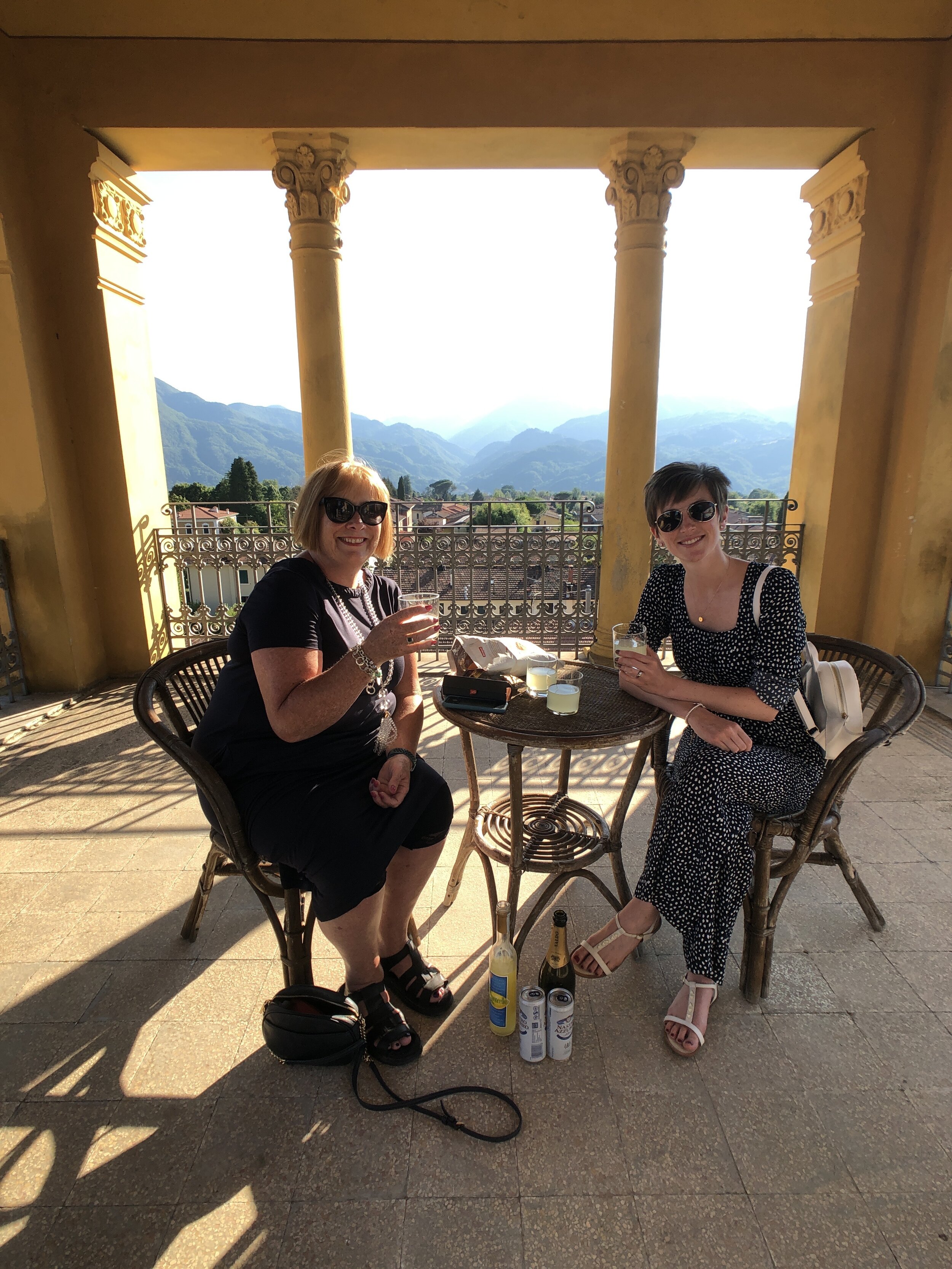
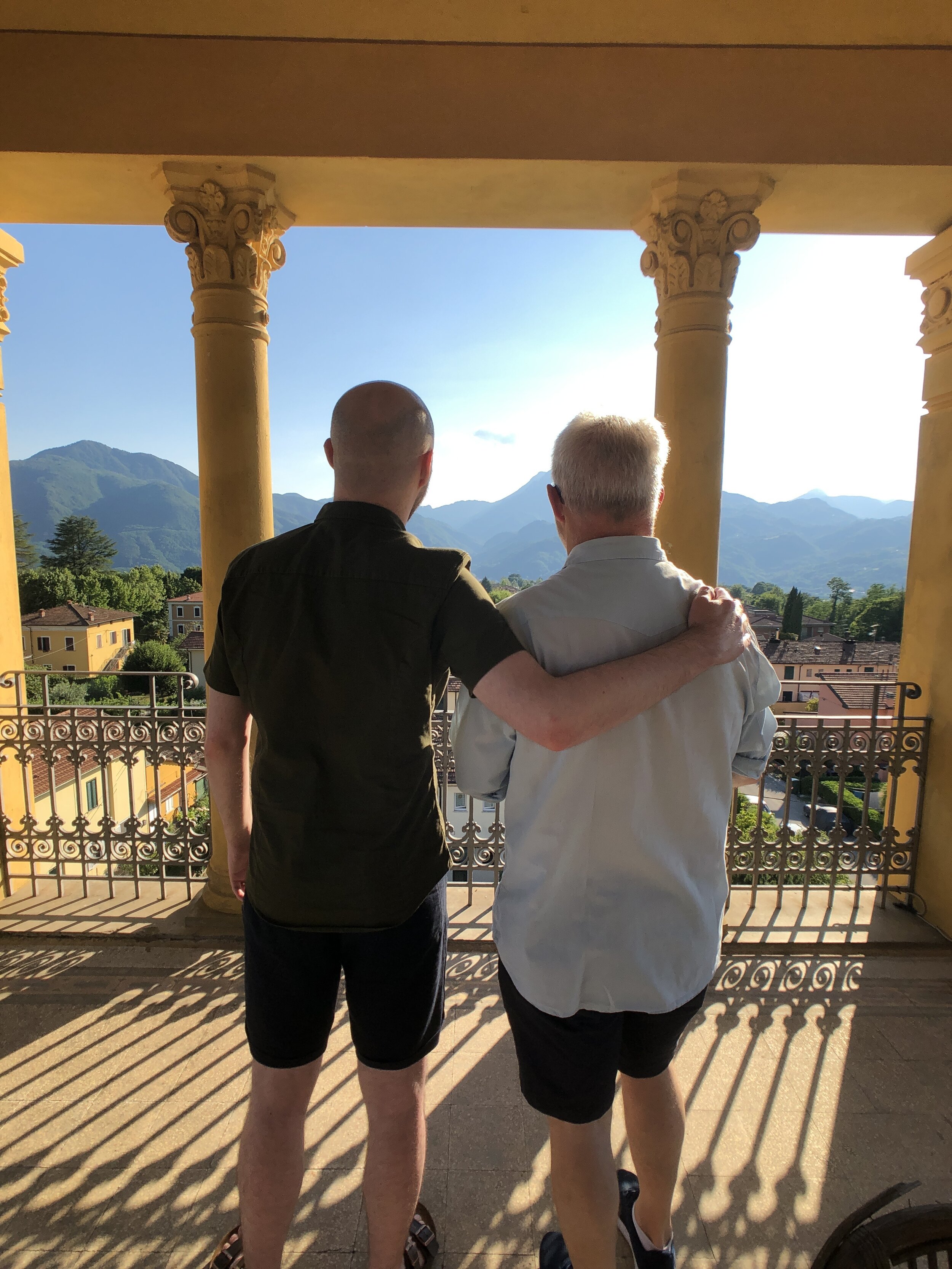
FAMILY
It goes without saying I’m sure, but one of the most important aids in a fight against cancer, is a support network. The word family is very broad for me - I’m not just talking about direct family, I’m referring to family in it’s broadest sense. Your partner, direct family, extended family, real friends, social media friends, local businesses, fellow patients, you’ll need them all.
To my wife Nicola, you’re the best team mate I could have ever asked for. Caring, focussed, my personal chef and pharmacist all in one, oh and my best mate. You have been through this whole thing with me, every bloody step. We both definitely carry some scars from this, and I’ll do my best to have a quiet remaining 60 years or so :)
To my mum and dad, I couldn’t ask for better parents. You took care of me in the darkest part of my life, but most importantly, you took care of Nic. When I was first diagnosed, my immediate worry was how this illness would affect my relationship with my wife. Thanks for keeping her close and taking care of her. This cancer shit is rough on the people around you sometimes more than it is to you. Thanks for visiting me, for making soups when I couldn’t eat solid food, for holding my hair back when I was sick (I’m bald for those of you who don’t know what I look like!), for driving the long drive through to Glasgow and back, moving your lives through there, waiting hours in clinics with me…for no question or request ever being enough, you guys are amazing.
To my brother Jamie, it’s hard to know what to say really. You’ve given me life back. I might not have made it to 31 without you. I’ve said to you in person, but I’m most thankful for the time you’ve given me back with my wife. Simply put, she’s the most important thing in my life. I look forward to all the future bro days we’ll have to celebrate together on the day of the transplant. And I’ll do my best to commit no murders, as we have the same blood now, so there’s that… ;) To Emma, my brother’s wife, thanks for keeping Jamie focussed, for looking after him during the treatment he received, and for visiting me in the wards.
To my wife’s direct family, Carol, Steve and Veronica, thank you for supporting me and Nic throughout my treatment - meals, dog sitting, hospital visits, cards, messages, gifts…you guys really kept my spirits up and allowed Nic to have some time away from it all at points too. This was incredibly important to me, to know that when she was away from me, that she was looked after.
To all of my wider family and family-in-law, you guys were great, and continue to be. To aunties, uncles, cousins and friends of the families, that sent cards, visited, or sent messages, thank you.
To my real mates, you guys know who you are, but to mention a few - my fellow gentlemen - Andy, Tony and Gus, you guys are great, and thanks for coming to visit me as often as you did, and sending messages to make me laugh. Playing Mario Kart with Andy in the ward is still one of my hospital highlights.
To our friend, and Pip’s favourite person, (we have to admit it!) Fiona from Superdog Training Academy. Your kindness, generosity and flexibility throughout my treatment won’t be forgotten. Looking after Pip for extra hours, overnights, at the drop of a hat when plans changed - I hope you know how much of an impact you and Shay had, and how grateful we’ll always be.
To my work friends, who there are definitely way too many to mention. You guys messaged me, sent care packages, made me videos, and hung banners for my return to work! It was incredible to feel so supported. And thank you to Multiply for supporting me so well during and after my treatment, it made everything else going on so much easier to deal with. I hope anyone going through what I went through has an employer like you, it means the world.
To my social media friends, who spoke to me via Instagram during my treatment, thanks for being so decent and caring. When you’re in the cancer/transplant bubble, having people to speak to is so important. Thanks to everyone who stopped by to say hi, to those of you who sent me care packages, and to those who were with me for the whole journey. As Tina Turner put it…it was simply the best.
To the small businesses in the local area around the Abbeyhill Colonies, thank you for supporting me in having a place to go and sit, eat and enjoy coffee in my long periods of recovery. These moments were a brief reprieve from what was going on inside the four walls of my mind. A special thanks to Century General Store, who strengthened me with incredible food, to Art & Vintage for their coffee and kindness, and to Polentoni for the taste of Italy that you provided in my life. I’m sure I’ve missed some groups in this enormous thank you message. But I hope that everyone who had an effect on my journey feels they fit into one pot or another.
CLOSING THOUGHTS
I think that going through Cancer has been a defining point in my life, but it’s not something that I think defines me. For a lot of Cancer survivors, people expect that you’ll go on to live your best life; fearless, progressive and ambitious. What I’d say to those people, is why? Cancer is a thing that happens to a lot of people completely at random. It’s not anything I did that gave me AML. I don’t smoke, drink very often, over eat, or treat people poorly, and yet it didn’t matter. I am someone who plans to live life as I always planned to live it. But not because of my cancer story, because I love my life.
I’d like to thank everyone who has made it this far, reading all three blogs. Reading about Cancer is tough, although not as tough as going through it, so I hope that you all feel that this has been a worthwhile experience for you.
That’s all folks
Graeme

